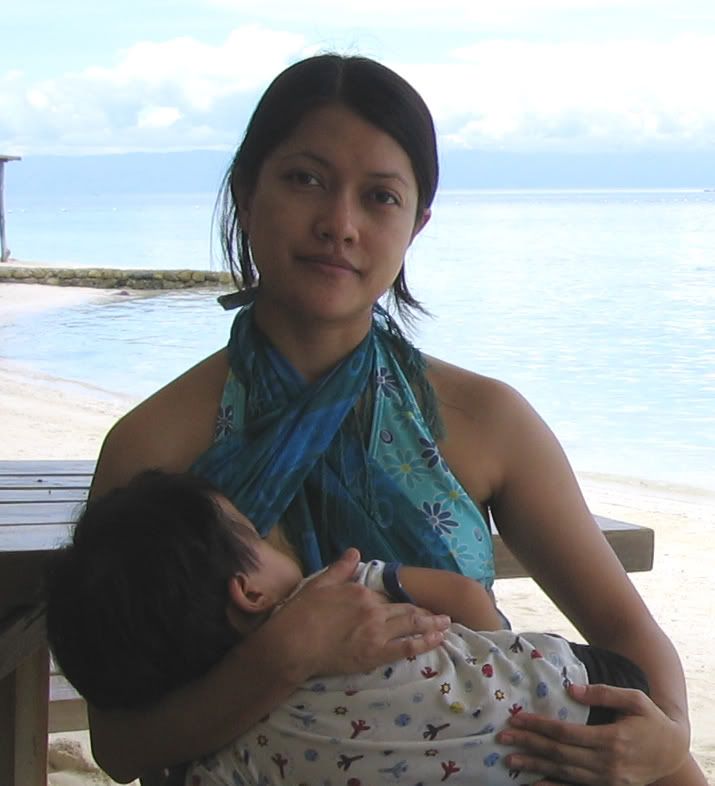
By accepting "total effect" as a standard for screening ads, promotional and marketing materials for breastmilk substitutes and related products, did the Supreme Court effectively ban these materials altogether?
Section 13 of the Philippine Milk Code's Revised Implementing Rules and Regulations (RIRR) sets "total effect" as a standard with which the Interagency Committee (IAC) would screen all advertising, promotional and marketing materials for products under the scope of the Milk Code. (Note: The IAC is composed of the Department of Health, Department of Social Welfare and Development, Department of Justice, and Department of Trade and Industry.)
The milk companies alleged that "total effect" was too vague to be a standard. However, the Supreme Court decided that it is "a viable standard against which the IAC may screen such materials before they are made public."
Section 13 states:
What exactly does it mean to use "total effect" as a standard for evaluating a piece of advertisement or other promotional material? It could mean that an advertisement does not have to make health and nutrition claims, or to use words like "close to mother's milk", to be disapproved. Even without these obvious elements, if the "total effect" of the ad is to portray bottle-feeding as equal to or better than breastfeeding, or to undermine breastfeeding, then the ad should be disapproved.
Using "total effects" as standard, it is not possible to create an ad or promo or marketing material for breastmilk substitutes without undermining breastfeeding. As David Clark, UNICEF Programme Officer, says: such materials aim to achieve a two-step process: first, they must convince a mother to lessen or stop or not begin breastfeeding; then second, they must convince the mother to buy a particular product to replace her breastmilk.
Therefore, the "total effect" of any material that advertises, promotes and markets breastmilk substitutes is to undermine breastfeeding, and any such material should be disapproved by the IAC.
Section 13 of the Philippine Milk Code's Revised Implementing Rules and Regulations (RIRR) sets "total effect" as a standard with which the Interagency Committee (IAC) would screen all advertising, promotional and marketing materials for products under the scope of the Milk Code. (Note: The IAC is composed of the Department of Health, Department of Social Welfare and Development, Department of Justice, and Department of Trade and Industry.)
The milk companies alleged that "total effect" was too vague to be a standard. However, the Supreme Court decided that it is "a viable standard against which the IAC may screen such materials before they are made public."
Section 13 states:
"Total Effect" - Promotion of products within the scope of this Code must be objective and should not equate or make the product appear to be as good or
equal to breastmilk or breastfeeding in the advertising concept. It must not in
any case undermine breastmilk or breastfeeding. The "total effect" should not
directly or indirectly suggest that buying their product would produce better
individuals, or resulting in greater love, intelligence, ability, harmony or in
any manner bring better health to the baby or other such exaggerated and
unsubstantiated claim.
What exactly does it mean to use "total effect" as a standard for evaluating a piece of advertisement or other promotional material? It could mean that an advertisement does not have to make health and nutrition claims, or to use words like "close to mother's milk", to be disapproved. Even without these obvious elements, if the "total effect" of the ad is to portray bottle-feeding as equal to or better than breastfeeding, or to undermine breastfeeding, then the ad should be disapproved.
Using "total effects" as standard, it is not possible to create an ad or promo or marketing material for breastmilk substitutes without undermining breastfeeding. As David Clark, UNICEF Programme Officer, says: such materials aim to achieve a two-step process: first, they must convince a mother to lessen or stop or not begin breastfeeding; then second, they must convince the mother to buy a particular product to replace her breastmilk.
Therefore, the "total effect" of any material that advertises, promotes and markets breastmilk substitutes is to undermine breastfeeding, and any such material should be disapproved by the IAC.
